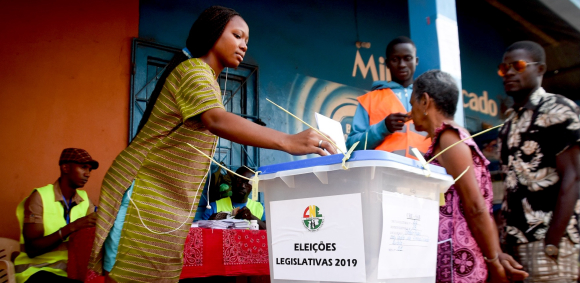In an era when many North Africans dream of heading to Europe in search of better prospects, Ahmed Ginah has taken a different path, one that is reshaping perceptions and inspiring a new wave of economic migration from Egypt to sub-Saharan Africa. The 36-year-old Egyptian entrepreneur has become a symbol of opportunity in Tanzania’s bustling commercial capital, Dar-es-Salaam, where he now runs a successful import-export company and supports fellow migrants forging new lives away from traditional migration routes.
Ginah left his village in Egypt’s northern delta in 2017, carrying little more than ambition and a vision. At just 28, he arrived in Dar-es-Salaam determined to find his place in what many in Egypt still perceived as a region plagued by poverty, disease, and underdevelopment. But he saw something different: a region full of untapped potential. That foresight paid off. By 2021, he had saved enough to launch his company, Dream Trading, with a modest $3,000 investment. The company began by importing and exporting aluminium household goods and has since expanded into steel distribution, reaching markets across Africa.
Today, Ginah is affectionately known as the “Mayor of Egyptians in Dar-es-Salaam,” a testament not only to his business acumen but to his influence and generosity within the growing Egyptian diaspora. His day starts at his warehouses and typically winds through Dar’s vibrant Kariakoo neighbourhood, where he meets with locals and migrants over breakfast at a Somali café mandazi and chipsi mayai (Tanzanian omelette with fries) often on the menu.
But Ginah’s role extends beyond entrepreneurship. He has become a mentor, guide, and even lifeline for many Egyptians arriving in Tanzania, especially those without existing family or support systems. He helps them find housing, offers jobs at his company, and most critically, provides access to trustworthy translators a vital resource in areas where only Swahili is spoken. “The most important thing I provide is a trusted, guaranteed translator,” Ginah explains, noting that language barriers can lead newcomers to fall prey to scams or misunderstandings.
His help, however, comes with expectations. Ginah only supports those who show initiative. “This country has a lot to offer,” he says, “but it doesn’t give to the lazy or dependent.” His commitment to helping those willing to work hard has enabled dozens of young Egyptians from his home village to settle and thrive in Tanzania.
Ginah’s success is part of a broader migration trend that reflects shifting dynamics in Africa. While Egypt’s youth continue to risk perilous journeys across the Mediterranean to Europe, a growing number are now turning southward in search of economic opportunity. Between 2017 and 2021, the number of Egyptians in non-Arab African countries increased from 46,000 to 54,000, according to official data. Analysts say this trend has accelerated as Egypt strengthens diplomatic and commercial ties with countries like Tanzania, Kenya, and Nigeria.
“This is economic migration with a new face,” says Ayman Zohry, a migration expert at the American University in Cairo. “Instead of chasing opportunities in saturated or hostile Western markets, young Egyptians are increasingly seeing sub-Saharan Africa as a land of potential.”
According to Egypt’s ambassador to Tanzania, Sherif Ismail, around 1,200 Egyptians now live in the East African country, which hosts an estimated 70,000 Arabs. Ginah’s efforts have made a meaningful impact on this small but growing community. His company not only distributes goods across African markets but also serves as a launchpad for newcomers, offering stability in a foreign land.
These economic migrants don’t always settle permanently. Migration to sub-Saharan Africa, Zohry explains, is often circular or temporary with workers returning to Egypt seasonally or moving between African countries as opportunities arise. Every Friday, a flight leaves Dar-es-Salaam for Cairo, filled with Egyptians carrying their earnings, gifts, and dreams home. The flow intensifies during festive seasons like Eid al-Fitr and Eid al-Adha, when many visit families, invest in housing, or fund pilgrimages to Mecca.
As Europe tightens its borders and the global economic landscape evolves, stories like Ginah’s challenge outdated narratives. They underscore the emergence of a new African dream, one shaped not by escape, but by engagement, innovation, and intra-African collaboration. Ginah’s journey from rural Egypt to the heart of East Africa proves that success doesn’t always lie north. Sometimes, heading south opens the door to even greater opportunity.














Leave a comment